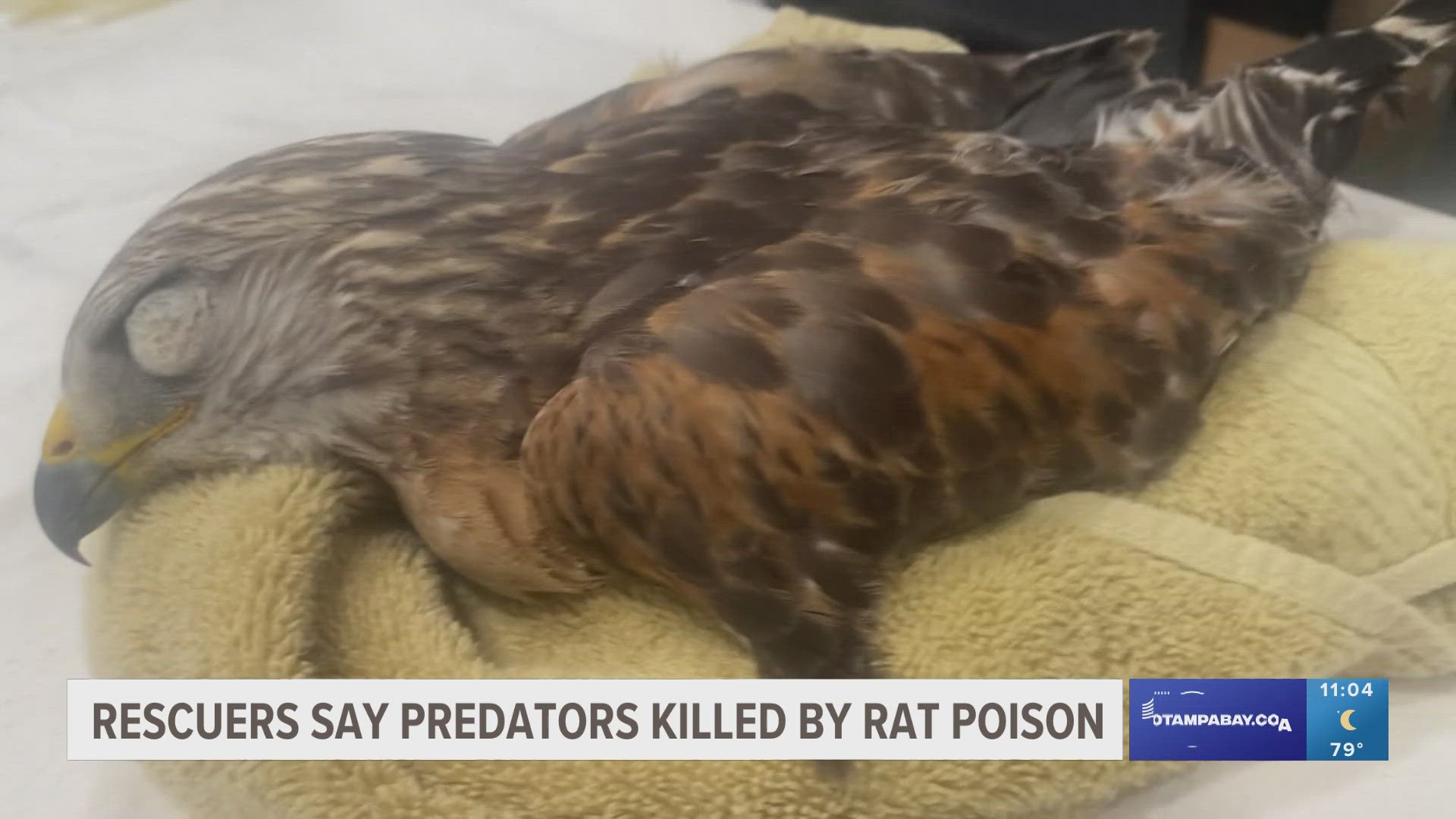SARASOTA COUNTY, Fla. — Wildlife rescuers across the Tampa Bay area are sounding the alarm about wild animals being killed by rat poison. They're looking into the deaths of a bobcat in Safety Harbor and red-shouldered hawks in Sarasota.
And as recently as Monday night, 10 Tampa Bay learned rescuers took in another red-shouldered hawk found poisoned in Sarasota that is now fighting for its life.
Experts say the tell-tale sign of poisoning from rodenticide for raptors like hawks is the closing of their third eyelid, the nictitating membrane, making it visible over their eye.
“We're looking for the eyes closing, which for the average person looks like eyes being white glazed over,” says Jonathan Hande, Senior Avian Hospital Technician at Save our Seabirds in Sarasota.
The hawk is one of more than 30 birds of prey the Wildlife Center of Southwest Florida has treated for rodenticide poisoning just this year. Just this past week, a family of hawks, including two chicks, also died in Sarasota. Save Our Seabirds took in the adult male while the WCSF took in the chicks.
“One passed away within the first 24 hours,” says WCSF executive director, Pamela DeFouw. “The second one started to show signs of improving, but then, unfortunately, took a turn backward and we actually just lost him [Sunday].”
Experts believe other predators are dying too, including a bobcat found dead in a tree in Safety Harbor last week.
“The first time I saw the picture, I know it's not a natural cause of death,” says Fairl Thomas, a wildlife rescuer with Birds in Helping Hands. “Once we were able to get some pictures that were more zoomed in, you could tell there wasn't anything obvious like a broken leg or, you know, blood indicating a gunshot wound.”
Florida FWC is performing a necropsy to determine if the bobcat died from rodenticide exposure. Rescuers in both the hawk and bobcat deaths say neighbors in the area have been using rat poison outside that contains the deadly rodenticides.
They ask if you need to take care of a rat problem, use other methods.
“I really recommend mechanical traps, whether that be the ‘have a heart’ traps or the snap traps,” says Hande. “They're not as clean of a way of dealing with the problem, but it really does help reduce any risk you see from the birds.”
A simple switch to save wild predators at the top of the food chain; keeping killers from getting killed.

